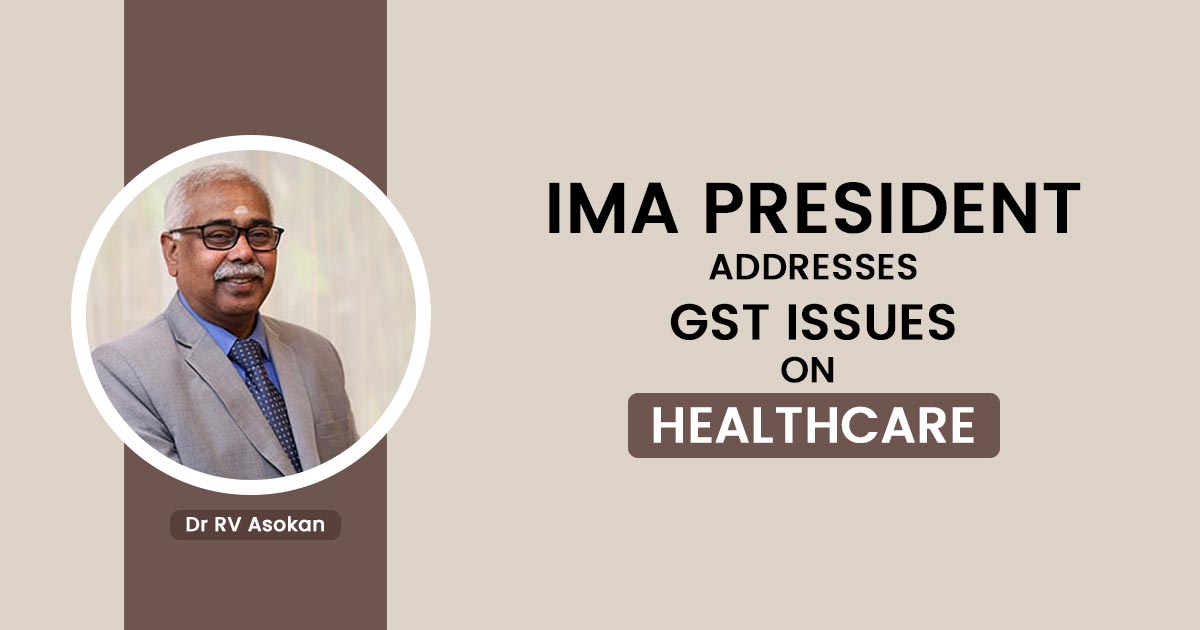
Dr RV Asokan, the firebrand national president of the Indian Medical Association (IMA), was in Nagpur to install the IMA Nagpur chapter’s new team led by Dr Manjusha Giri.
Dr Asokan articulated the pressing problems plaguing India’s medical sector, suggesting immediate action needs to be taken by the government.
On illness, GST on healthcare is a tax.
Guess taxing people for falling sick! It’s exploitation at its most threatening. This discomfort tax on patient beds should be withdrawn instantly.
On the current GST structure, Dr Asokan highlights the excessive rates charged on life-saving equipment, basic medical supplies, and even health insurance. The same load indirectly falls on patients, asking for a GST reduction on healthcare, outlining that only a sick person knows about it.
Dr Asokan addressed the concerns about the charged GST on associations such as IMA. Associations are the crucial ones who advocate the doctors and promote better healthcare. Taxing them suppresses their voice, he stated, requiring a complete withdrawal of GST on membership fees and services proposed by associations like the IMA.
On violence against doctors and medical staff Dr Asokan addressed. Even after 23 state-level laws, doctors resume to face violence. Such regulations do not furnish comfort.
Also Read:- Don’t Pay GST on Entire Medical Bills, Must Check Here
We want a robust, centralized law with teeth. The current laws are bygone, he expressed, claiming that the IMA’s pending demand for a strong central law that contains all forms of violence against medical professionals and healthcare institutions.
The declaration of hospitals and healthcare facilities as ‘safe zones’ is been requested by Dr Asokan.
Dr Asokan also talked about the growing trend of mixopathy the integration of various medical systems. Every system has its strengths and restrictions. Mixopathy is a threat to patient safety. It is similar to a cafeteria approach to healthcare, and it can be fatal.
Related:- GST Impact on Healthcare Industry in India
He supported the notion of informed choice, where patients carry access to different medical systems but choose the appropriate one, based on clear information. He concluded by repeating the IMA’s firm stance a complete stop to attempts at combining distinct medical systems.









